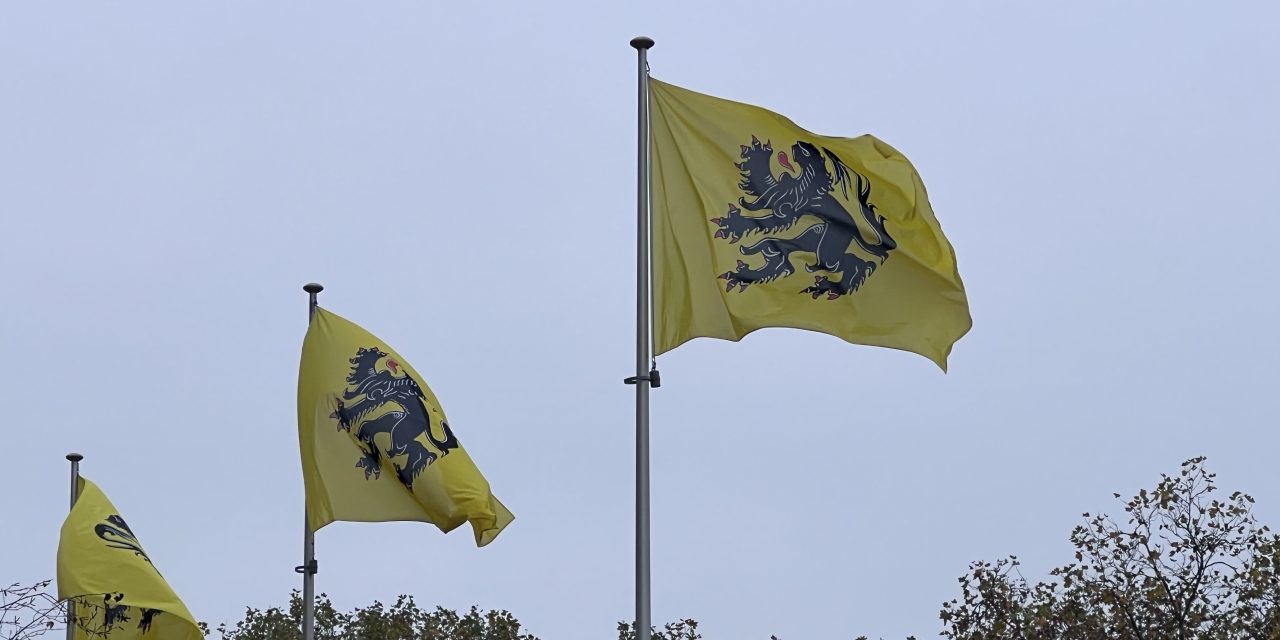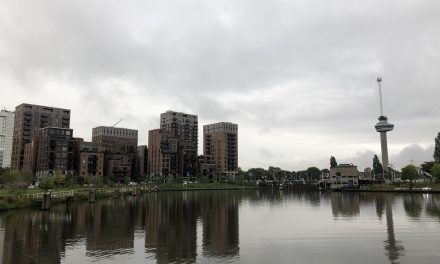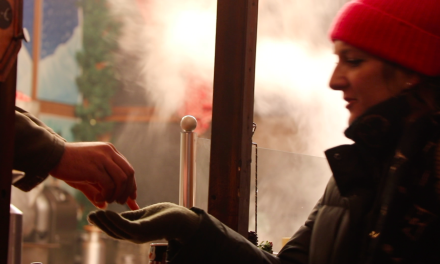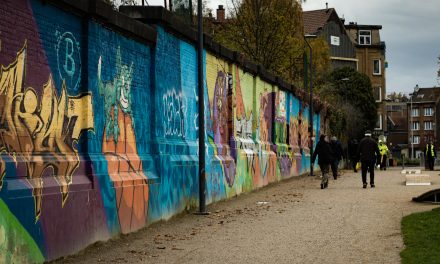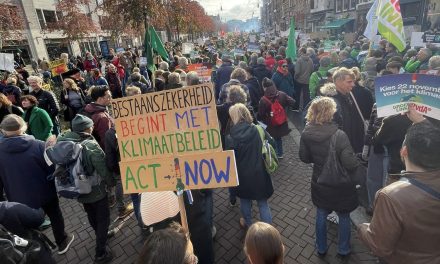With over 100 different languages spoken, Brussels is considered to be one of the most multilingual cities in the world. Meanwhile the city’s two official languages, French and Dutch, have been feuding over who takes the center stage. For centuries Dutch has taken the short straw and has been decreasing significantly. However, things seem to be changing as the Dutch language is making a comeback.
In Brussels, it’s hard to miss the bilingual nature of the city. Street signs, public transport, and governmental buildings display both French and Dutch. While this bilingualism may suggest an even balance between the city’s two official languages, the reality of daily life tells a different story. In most parts of the Brussels, French dominates as the primary spoken and written language.
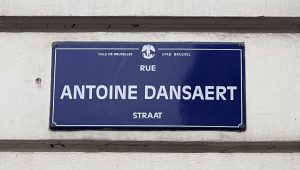
Antoine Dansaert street in Brussels
Even in the Flemish areas of the city, like the Dansaert neighbourhood, the Dutch language is in the minority. At the edge of Dansaert, which is considered to be the Flemish District, Café Merlo can be found. “About seventy percent of the guests here are Dutch-speaking,” says café-owner Waldo, “but don’t be fooled. This neighbourhood might be called the Flemish District, but that’s really just a ceremonial name. Most of the shops in the neighbourhood are still French.”
A disappearing language
Brussels was not always as it is today. The city was once a predominantly Dutch-speaking city due to being situated in Flanders, the Dutch-speaking half of Belgium. This began to change when Brussels became the capital. A significant influx of people from Wallonia, the French-speaking half of the country, initiated what is known as the ‘Francization of Brussels’, establishing French as the city’s dominant language.
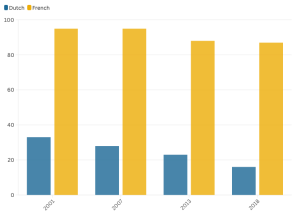
Source: BRIO Taalbarometer Brussel
This trend has continued through recent decades. According to the Language Barometer of Brussels the percentage of Dutch speakers has halved from 33,3% in 2001 to just 16,3% in 2018. Café-regular at Merlo, Sylvie, experiences this decline on a daily basis. “I always speak French in shops and stores”, she says. Ever since she left her Dutch speaking hometown of Eeklo to live in Brussels, a little over thirty years ago, the decrease of Dutch in the city has made an impact on her life as a healthcare worker:
A comeback
Things seem to be making a turnaround when it comes to the Dutch language in the city. This year’s Language Barometer reveals a significant shift, with Dutch speakers rising from an all-time low of 16,3% in 2018 to 22,3% in 2024. This revival is largely attributed to by policies of the Flemish Government, which seeks to preserve the Dutch language and maintain Flemish networks in the city. “Within all areas of policy in the city we take the Dutch language into consideration. It’s part of every step,” explains a policymaker for Coordination Brussels, the body overseeing area’s such as Dutch education and Dutch healthcare in the capital.
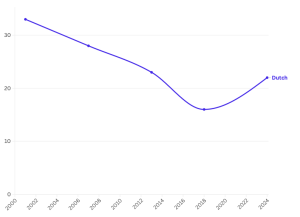
Source: BRIO Taalbarometer Brussel
The growth in Dutch can mainly be linked to the increased investments in education. Coordination Brussels collaborates with organizations like Het Huis van het Nederlands (The House of Dutch) to expand access to language courses, which, partially due to the rising multilinguality in the city, have seen a rising enrollment. Additionally, more Dutch primary and secondary schools are being opened in the city, benefiting younger residents and further strengthening the presence of Dutch in Brussels.
A double sided coin
Another regular at Café Merlo, Erik, has been working in a Dutch secondary school in Brussels for over a decade now. He sees these investments in Dutch education as a double sided coin. “We’re seeing a lot of youngsters attending Dutch schools who don’t speak fluent Dutch.” What Erik talks about goes beyond the French and Dutch division in the city: due to the rising multilinguality of the city, more and more Arabic, Turkish and Spanish parents have their kids attend these Dutch schools. “This not only puts a lot of pressure on the teachers, but it also creates more language bubbles in school environments,” Erik explains.
Overall Sylvie and Erik both agree that it will take time before the benefits of this comeback of Dutch will actually start to show within the education system, social bubbles or other areas. “A lot of the barriers are so ingrained. It’s just not that simple to just start speaking Dutch in the shops here in Brussels,” Sylvie says, “You know what? Maybe that is exactly what I should start doing.”
